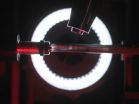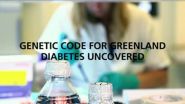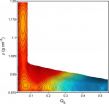(Press-News.org) A recent study evaluating HER2 testing in a large cohort of women with breast cancer found important limitations in the conventional way HER2 testing is performed in the US and internationally.
Dartmouth-Hitchcock Norris Cotton Cancer Center physicians and researchers retested tumor samples from a large group of women and found that 22 out of 530 women had their tumor type incorrectly classified. They reported their findings in a publication titled "Assessing the Discordance Rate between Local and Central HER2 Testing in Women with Locally Determined HER2-Negative Breast Cancer," which was published in Cancer on June 13, 2014.
Breast cancer is categorized into several subtypes based on conventional laboratory, and newer molecular tests. This study looked at the accuracy in classifying breast cancers in one particular subtype, specifically those that are "human epidermal growth factor receptor 2" or HER2 positive. What is particularly important in accurately determining HER2 in breast cancer is that when a woman's cancer tests positive for HER2, there are specific treatments proven extremely effective in improving outcome and preventing recurrence of cancer. These HER2 directed, or targeted, therapies are critically important in treating women with HER2 positive breast cancer.
"We, and other groups, have previously shown that a certain percentage of cases found to be HER2 positive in local laboratories are in fact HER2 negative when tested in more experienced central labs. There has, however, been almost no research evaluating the accuracy of a negative HER2 result," said Peter A. Kaufman, MD. "This is the first large study to look at this. What is comforting is that we found that re-testing in experienced larger labs confirmed the original local lab results in the majority of cases."
Kaufman noted that they did find about four percent of cases that were originally determined to be HER2 negative were in fact HER2 positive on repeat testing. Many of these cases were detected as being positive by testing for HER2 using both of two different and complementary tests (IHC and FISH, as described below).
The repercussions of incorrectly identifying a cancer's subtype are considerable. "While it is comforting that only four percent of these women were misclassified initially, this is an enormous issue for those who fall into this group," said Kaufman. "This is because HER2 targeted therapies are critically important for women with HER2 positive breast cancer."
The variance in accuracy may be related to how tests are conducted in smaller versus larger pathology laboratories. Two different tests are approved for and widely used for HER2: immunohistochemistry (IHC) or florescence in situ hybridization (FISH). Either test may be used to determine a woman's HER2 status. Frequently, based on recommendations by leading oncology groups, one or the other is used. In this case, using both tests allowed researchers to uncover errors resulting from reliance on a single test. Of the 22 samples incorrectly categorized, 18 had been processed by a local laboratory using only one testing method.
The analysis was based on the VIRGO study, a large, disease-based, observational cohort study of more than 1,200 women with HER2-negative metastatic breast cancer from June 2008 through January 2011. Out of the 1,267 patients enrolled in VIRGO, 776 submitted samples for this study from which 552 were suitable for centralized testing using IHC and FISH assays.
INFORMATION:
The study was funded by Roche-Genentech, Inc.
About Norris Cotton Cancer Center at Dartmouth-Hitchcock
Norris Cotton Cancer Center combines advanced cancer research at Dartmouth and the Geisel School of Medicine with patient-centered cancer care provided at Dartmouth-Hitchcock Medical Center, at Dartmouth-Hitchcock regional locations in Manchester, Nashua, and Keene, NH, and St. Johnsbury, VT, and at 12 partner hospitals throughout New Hampshire and Vermont. It is one of 41 centers nationwide to earn the National Cancer Institute's "Comprehensive Cancer Center" designation. Learn more about Norris Cotton Cancer Center research, programs, and clinical trials online at cancer.dartmouth.edu.
False negative results found in prognostic testing for breast cancer
4 percent of women incorrectly classified
2014-06-18
ELSE PRESS RELEASES FROM THIS DATE:
New Stanford blood test identifies heart-transplant rejection earlier than biopsy can
2014-06-18
Stanford University researchers have devised a noninvasive way to detect heart-transplant rejection weeks or months earlier than previously possible. The test, which relies on the detection of increasing amounts of the donor's DNA in the blood of the recipient, does not require the removal of any heart tissue.
"This test appears to be safer, cheaper and more accurate than a heart biopsy, which is the current gold standard to detect and monitor heart-transplant rejection," said Stephen Quake, PhD, professor of bioengineering and of applied physics. "We believe it's likely ...
How a new approach to funding Alzheimer's research could pay off
2014-06-18
More than 5 million Americans suffer from Alzheimer's disease, the affliction that erodes memory and other mental capacities, but no drugs targeting the disease have been approved by the U.S. Food and Drug Administration since 2003. Now a paper by an MIT professor suggests that a revamped way of financing Alzheimer's research could spur the development of useful new drugs for the illness.
"We are spending tremendous amounts of resources dealing with this disease, but we don't have any effective therapies for it," says Andrew Lo, the Charles E. and Susan T. Harris Professor ...
Maybe birds can have it all: Dazzling colors and pretty songs
2014-06-18
ITHACA, N.Y. – A study of one of the world's largest and most colorful bird families has dispelled a long-held notion, first proposed by Charles Darwin, that animals are limited in their options to evolve showiness. The study – the largest of its kind – was published today in the Proceedings of the Royal Society B.
The natural world is full of showstoppers – birds with brilliant colors, exaggerated crests and tails, intricate dance routines, or virtuosic singing. But it's long been thought that these abilities are the result of trade-offs. For a species to excel in one ...
Demand for diabetes, thyroid care outpaces supply of endocrinologists
2014-06-18
Washington, DC—As more people are diagnosed with diabetes and other hormone conditions, a growing shortage of endocrinologists could force patients to wait longer to see a doctor, according to a new Endocrine Society workforce analysis published in the Journal of Clinical Endocrinology & Metabolism (JCEM).
Endocrinologists are specially trained physicians who diagnose diseases related to the glands. They specialize in treating diabetes, obesity, osteoporosis, thyroid disorders, adrenal diseases, and a variety of other conditions related to hormones.
The analysis found ...
Scientists take first dip into water's mysterious 'no-man's land'
2014-06-18
Scientists at the Department of Energy's SLAC National Accelerator Laboratory have made the first structural observations of liquid water at temperatures down to minus 51 degrees Fahrenheit, within an elusive "no-man's land" where water's strange properties are super-amplified.
The research, made possible by SLAC's Linac Coherent Light Source (LCLS) X-ray laser and reported June 18 in Nature, opens a new window for exploring liquid water in these exotic conditions, and promises to improve our understanding of its unique properties at the more natural temperatures and ...
UEA researchers discover Achilles' heel in antibiotic-resistant bacteria
2014-06-18
Scientists at the University of East Anglia have made a breakthrough in the race to solve antibiotic resistance.
New research published today in the journal Nature reveals an Achilles' heel in the defensive barrier which surrounds drug-resistant bacterial cells.
The findings pave the way for a new wave of drugs that kill superbugs by bringing down their defensive walls rather than attacking the bacteria itself. It means that in future, bacteria may not develop drug-resistance at all.
The discovery doesn't come a moment too soon. The World Health Organization has warned ...
Identifying opposite patterns of climate change between the middle latitude areas
2014-06-18
Korean research team revealed conflicting climate change patterns between the middle latitude areas of the Northern and Southern Hemispheres in relation to glacial and interglacial cycles which have been puzzled for the past 60 years.
Doctor Kyoung-nam Jo from the Quaternary Geology Department of the Korea Institute of Geoscience and Mineral Resources(KIGAM) revealed a clue for solving the riddle of past global climate change in his paper titled 'Mid-latitudinal interhemispheric hydrologic seesaw over the past 550,000 years' which was featured in the journal Nature.
This ...
Evolutionary biology: Why cattle only have 2 toes
2014-06-18
During evolutionary diversification of vertebrate limbs, the number of toes in even-toed ungulates such as cattle and pigs was reduced and transformed into paired hooves. Scientists at the University of Basel have identified a gene regulatory switch that was key to evolutionary adaption of limbs in ungulates. The study provides fascinating insights into the molecular history of evolution and is published by Nature today.
The fossil record shows that the first primitive even-toed ungulates had legs with five toes (=digits), just like modern mice and humans. During their ...
Scientists break the genetic code for diabetes in Greenland
2014-06-18
VIDEO:
New Danish genetics research explains the high incidence of type 2 diabetes in the Greenlandic population. The ground-breaking findings have just been published in the prestigious scientific journal Nature....
Click here for more information.
A spectacular piece of detective work has mapped a special gene variant among Greenlanders which plays a particularly important role in the development of type 2 diabetes. The results have been published in Nature and can be ...
Familiar yet strange: Water's 'split personality' revealed by computer model
2014-06-18
Seemingly ordinary, water has quite puzzling behavior. Why, for example, does ice float when most liquids crystallize into dense solids that sink?
Using a computer model to explore water as it freezes, a team at Princeton University has found that water's weird behaviors may arise from a sort of split personality: at very cold temperatures and above a certain pressure, water may spontaneously split into two liquid forms.
The team's findings were reported in the journal Nature.
"Our results suggest that at low enough temperatures water can coexist as two different ...
LAST 30 PRESS RELEASES:
Why chronic pain lasts longer in women: Immune cells offer clues
Toxic exposure creates epigenetic disease risk over 20 generations
More time spent on social media linked to steroid use intentions among boys and men
New study suggests a “kick it while it’s down” approach to cancer treatment could improve cure rates
Milken Institute, Ann Theodore Foundation launch new grant to support clinical trial for potential sarcoidosis treatment
New strategies boost effectiveness of CAR-NK therapy against cancer
Study: Adolescent cannabis use linked to doubling risk of psychotic and bipolar disorders
Invisible harms: drug-related deaths spike after hurricanes and tropical storms
Adolescent cannabis use and risk of psychotic, bipolar, depressive, and anxiety disorders
Anxiety, depression, and care barriers in adults with intellectual and developmental disabilities
Study: Anxiety, gloom often accompany intellectual deficits
Massage Therapy Foundation awards $300,000 research grant to the University of Denver
Gastrointestinal toxicity linked to targeted cancer therapies in the United States
Countdown to the Bial Award in Biomedicine 2025
Blood marker from dementia research could help track aging across the animal world
Birds change altitude to survive epic journeys across deserts and seas
Here's why you need a backup for the map on your phone
ACS Central Science | Researchers from Insilico Medicine and Lilly publish foundational vision for fully autonomous “Prompt-to-Drug” pharmaceutical R&D
Increasing the number of coronary interventions in patients with acute myocardial infarction does not appear to reduce death rates
Tackling uplift resistance in tall infrastructures sustainably
Novel wireless origami-inspired smart cushioning device for safer logistics
Hidden genetic mismatch, which triples the risk of a life-threatening immune attack after cord blood transplantation
Physical function is a crucial predictor of survival after heart failure
Striking genomic architecture discovered in embryonic reproductive cells before they start developing into sperm and eggs
Screening improves early detection of colorectal cancer
New data on spontaneous coronary artery dissection (SCAD) – a common cause of heart attacks in younger women
How root growth is stimulated by nitrate: Researchers decipher signalling chain
Scientists reveal our best- and worst-case scenarios for a warming Antarctica
Cleaner fish show intelligence typical of mammals
AABNet and partners launch landmark guide on the conservation of African livestock genetic resources and sustainable breeding strategies
[Press-News.org] False negative results found in prognostic testing for breast cancer4 percent of women incorrectly classified



